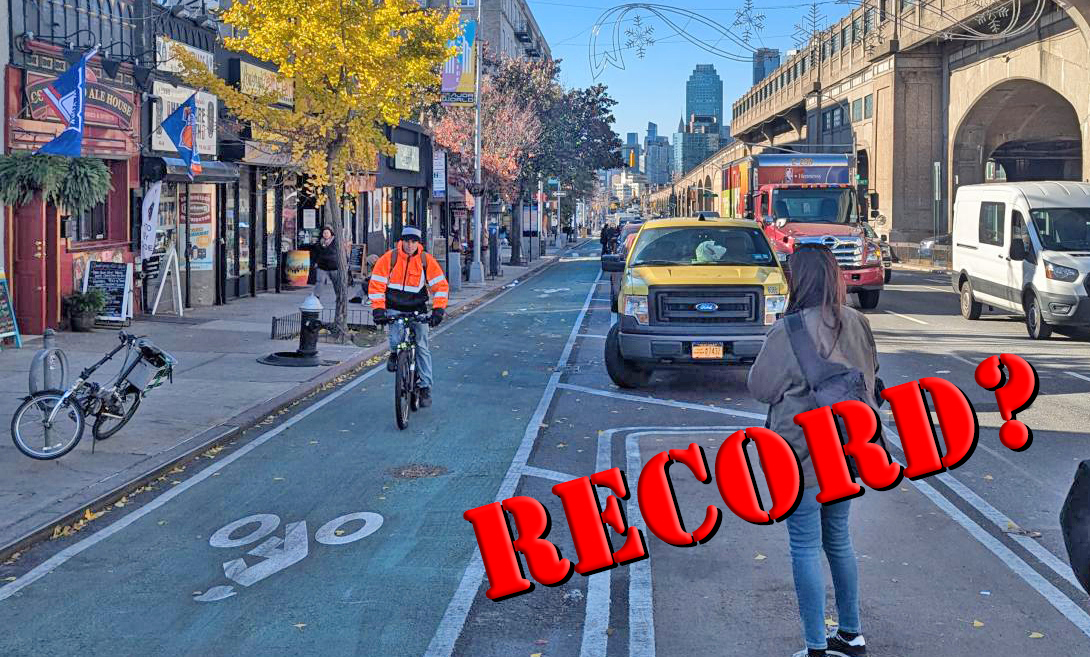 Photo: berk2804/Flickr.
Photo: berk2804/Flickr.If you're a livable streets optimist, you probably suspected that car-free Times Square critics like Andrea Peyser, Susan Dominus, and John Liu were out of touch. After all, most New Yorkers don't own cars, and many of those who do spend more time as pedestrians than drivers. And really, how many people were driving their own private vehicles right through the middle of Times Square, anyway?
But maybe you had your doubts. Maybe the "It's just for tourists!" argument seemed like it might gain some traction. Maybe fears of Carmaggedon would win out.
Today's Q Poll settles the question: Car-free Times Square is a hit. Fifty-eight percent of New Yorkers think it was a good idea to close Broadway to cars and give more space to pedestrians, compared to 35 percent who don't. A surprisingly high number of New Yorkers -- 44 percent -- say they've seen the new Broadway for themselves. That translates to about three and half million people.
When it comes to transformative regional transportation policies, however, advocates still have a steep hill to climb. Majorities oppose East River bridge tolls and congestion pricing, even when the question explicitly states that funds would be used to limit future transit fare increases. Skepticism about the MTA's ability to deliver mega-projects like the Second Avenue Subway and the 7 line extension is very high.
Perhaps most importantly, among transit riders who think the quality of service has declined recently, blame falls on the MTA more than the state legislature. Much more, in fact -- 59 percent to 19 percent. This is troubling.
For the time being, it looks like Pedro Espada and company can rest comfortably in the knowledge that they won't be held accountable for shortchanging our transit system.
But if you're one of the optimists, here's something to build on. Overall support for congestion pricing stands at 40 percent. Okay, that's pretty sobering, but it's significantly higher than the 29 percent support for bridge tolls (maybe labels do matter). It's also higher than the level of public support for congestion charging prior to implementation in Stockholm. And back when congestion pricing was all over the news, we saw this number swing up and down rather dramatically, depending on the phrasing of the question.
We know the needle can be moved. The next time pricing comes up in the legislature, will advocates mobilize a broad enough coalition to move Albany along with it?





